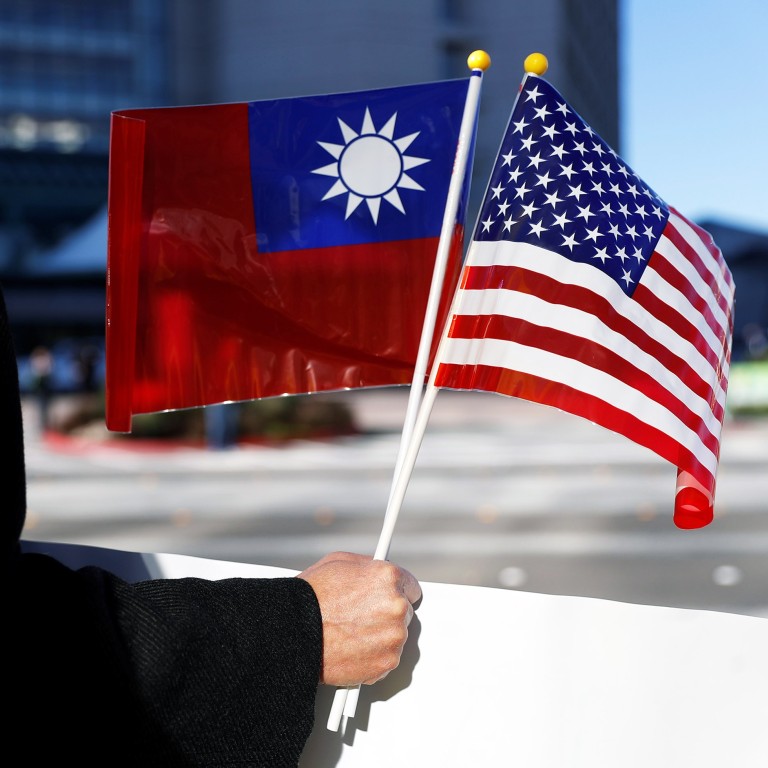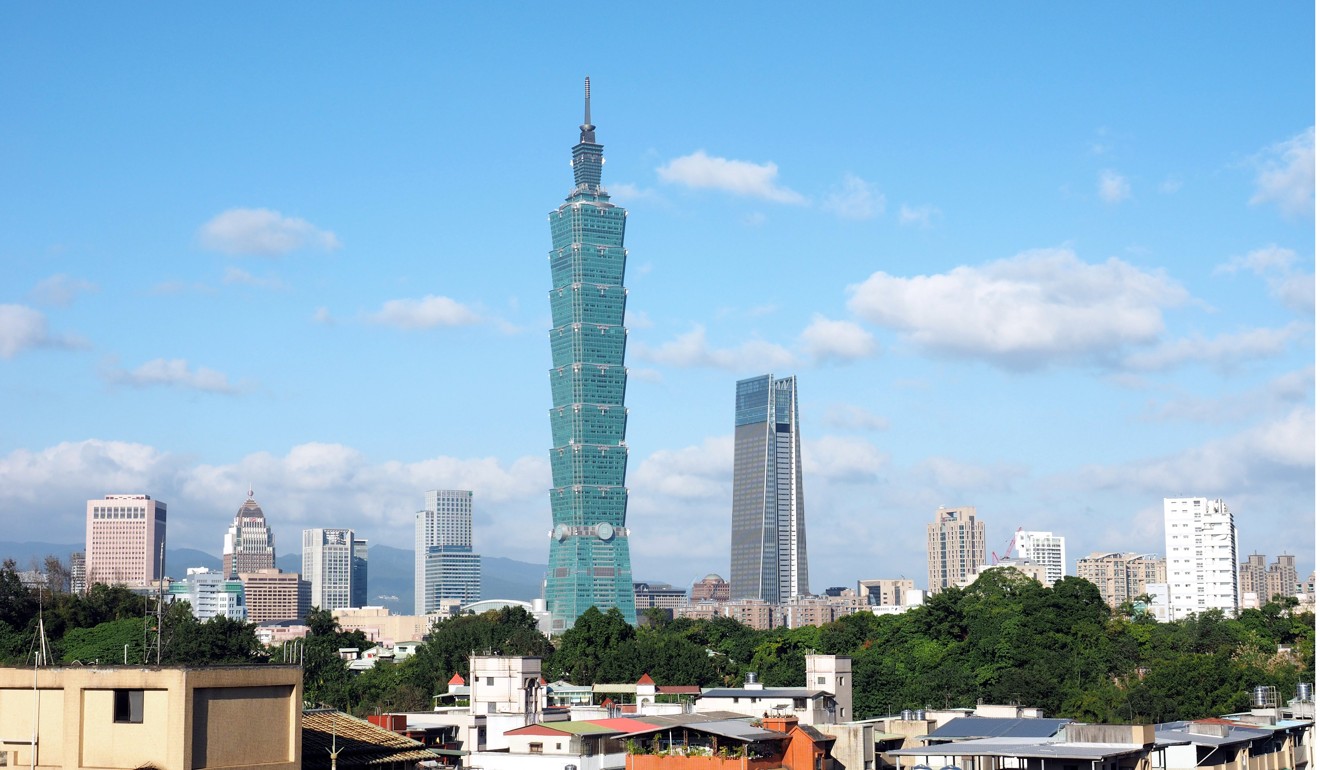
US-China trade war, Donald Trump and pressure from Beijing are three biggest worries for Taiwan-based firms this year
- Survey of business leaders by American Chamber of Commerce highlights biggest concerns for coming year
Foreign business leaders based in Taiwan have highlighted the trade war between the United States and China, Donald Trump’s “America first” policies and cross-strait political tensions as the three biggest risks the island’s economy faces this year.
According to the annual Business Climate Survey released by the American Chamber of Commerce in Taipei on Wednesday, multinational business leaders are significantly less confident than last year about Taiwan’s economic prospects in the coming year.
“Only 45.8 per cent of those surveyed said they were very or somewhat confident about the economic outlook for 2019 – a 10 percentage point drop from the year before,” the survey said.
The annual survey also flagged cybersecurity threats and intellectual property rights violations as causes for concern.
China’s ‘grand plan’ is to push the US out of Asia
The survey questioned senior representatives of the 500 biggest corporations operating in Taiwan, and found that 81 per cent of respondents expressed concern about the trade war, followed by 79 per cent who were worried about political pressure from the mainland and 73 per cent who identified Trump’s American first policies as a problem.
“As you all know, businesses all want to see stability. So many of the companies in Taiwan have vested interests in both the United States and China, so any trade disputes between these two countries mean instability and uncertainty, and that’s why we all feel that this issue leads to some instability and some lack of confidence in the short term,” chamber chairman Leo Seewald said.
He continued that Trump’s domestic policies might also put “stress” on investments in Taiwan, meaning “we don’t see that they are coming as regularly as we would like”.
Seewald said pressure from Beijing had also hit business confidence because while companies could adapt to changes in economic policy it would be “a lot more difficult to judge” how to respond to political changes.
Cross-strait relations have become increasingly strained since Tsai Ing-wen of the independence-leaning Democratic Progressive Party was elected president in 2016 and refused to accept the one-China principle.
Beijing, which regards Taiwan as a breakaway province that must eventually be reunited with the mainland, has suspended official exchanges with Taipei and sought to increase the pressure by staging war games around the island and poaching some of its remaining diplomatic allies.
‘Don’t panic’, Taiwan told, as China conducts military aircraft drill
Earlier this month, relations took another turn for the worse after Tsai firmly rebuffed Chinese President Xi Jinping’s call for Taiwan to begin talks of unification under the “one country, two systems” model used in Hong Kong.
While short-term confidence has fallen the survey found that when it came to the economic outlook for the next three years, 53.6 per cent of firms expressed some degree of confidence about the island’s prospects, a figure little changed from last year.

Executives are more bullish about their own companies’ profitability, with about 80 per cent saying they were very or somewhat confident about revenue growth both for the next 12 months and over a three-year period.
Seewald said this was partly due to Taiwan’s economic strengths and government measures to support innovation and infrastructure development.
However, he said Taiwan should do more to retain talent as more workers were being lured to work on the mainland or in Hong Kong.

